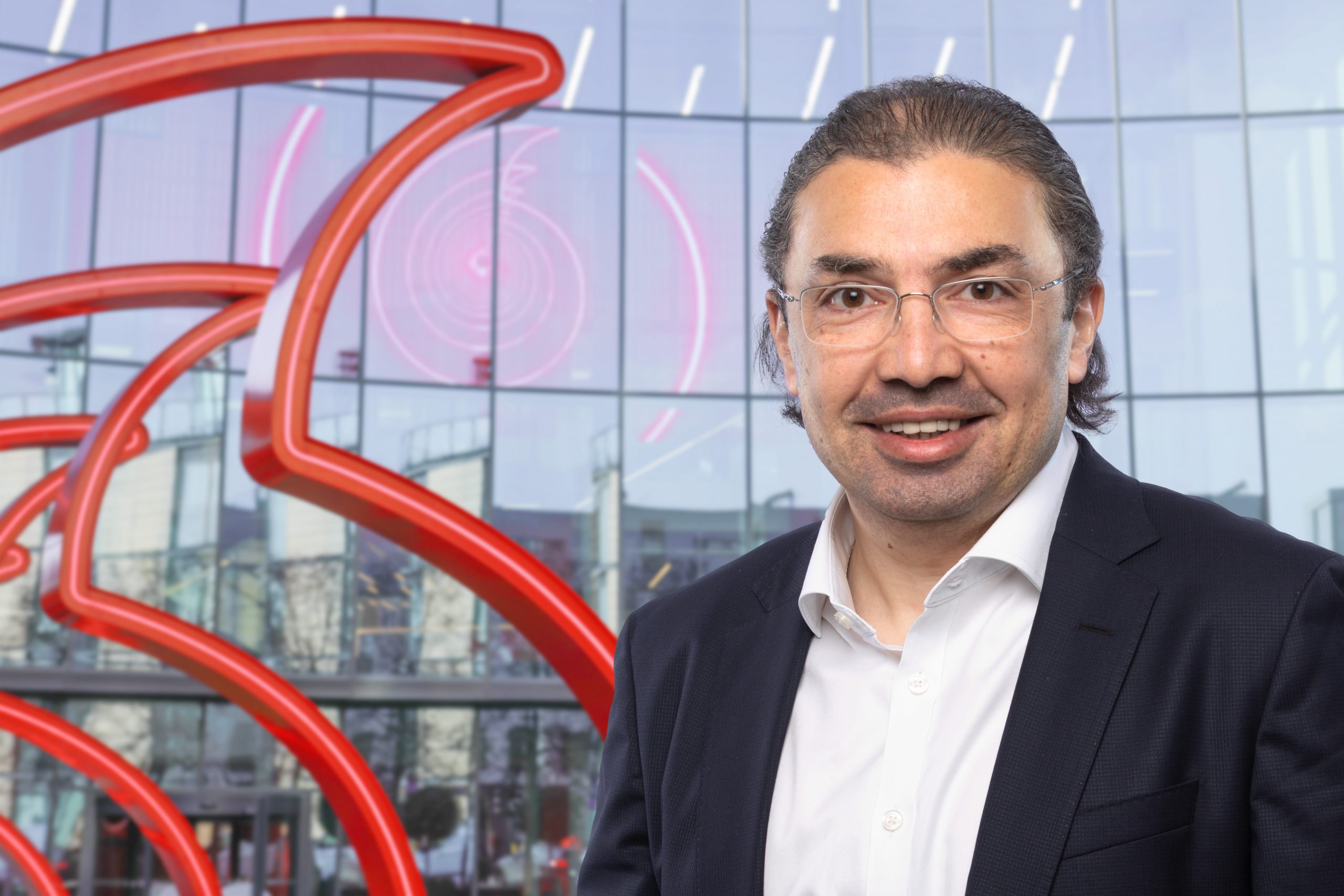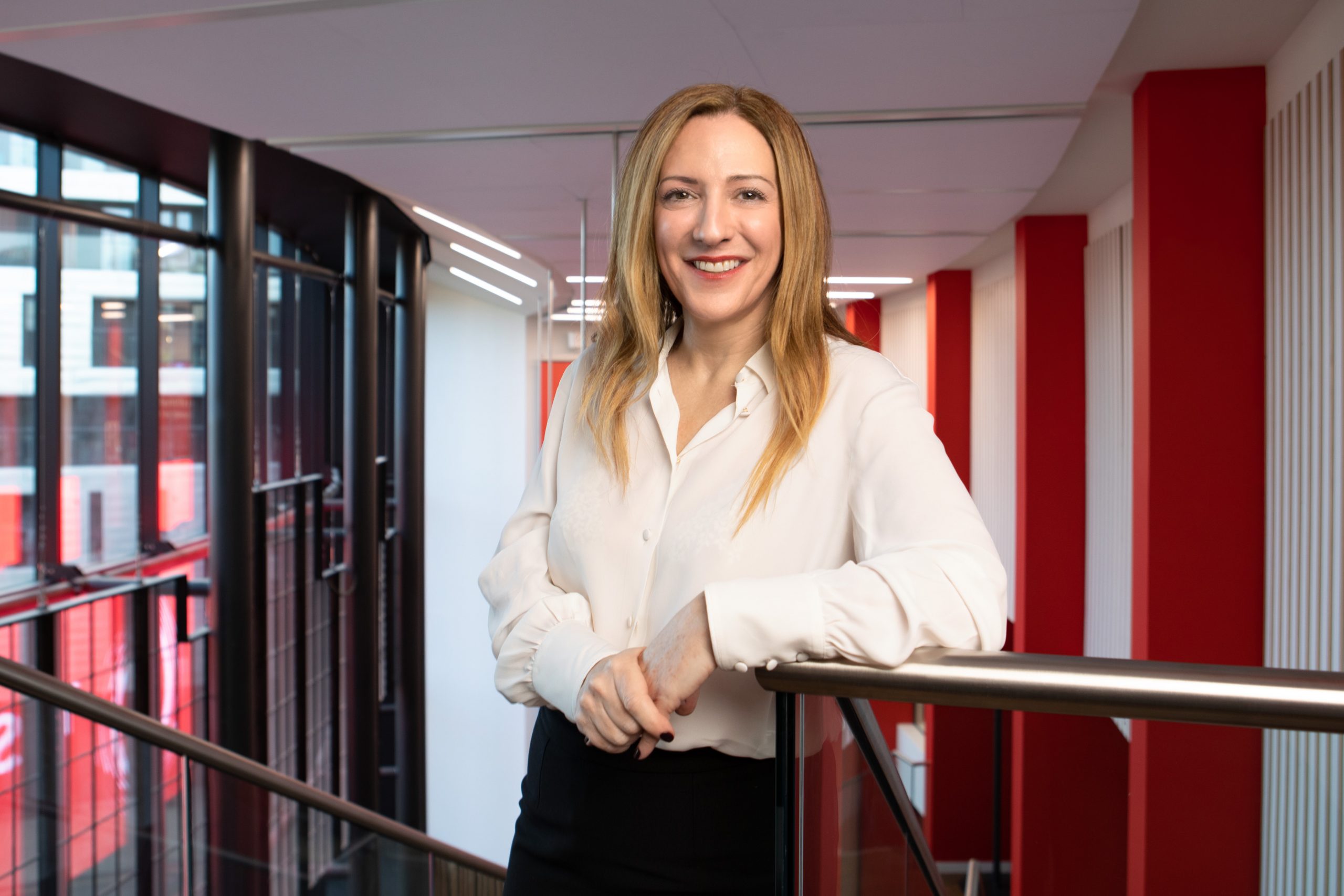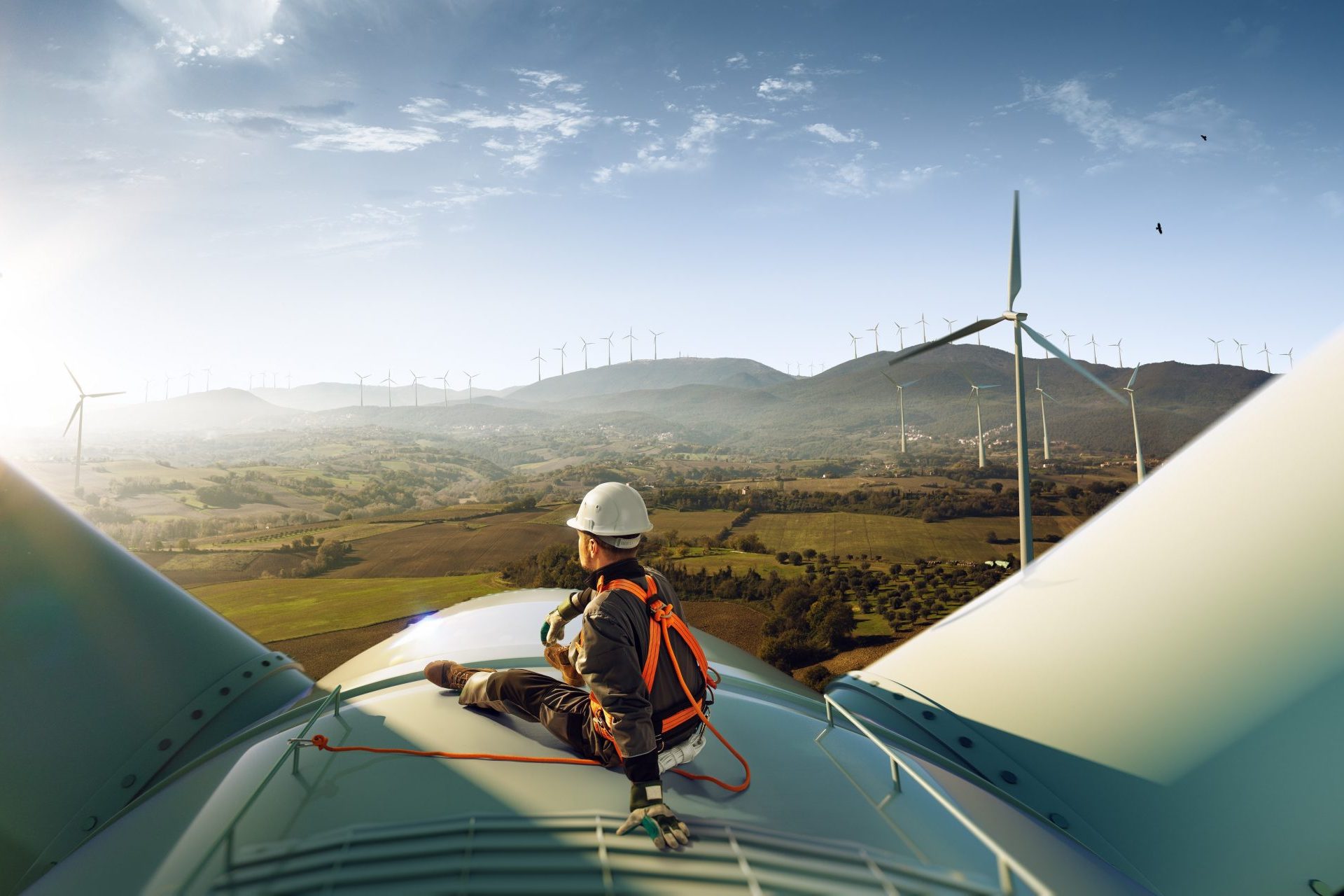
As the world’s leaders meet in Egypt for COP27, the United Nations’ annual climate change conference, Vodafone's UK CEO Ahmed Essam reaffirms the company's goal to reach net zero carbon emissions for its own operations by 2027.
Climate change poses an existential threat to humanity, and we can’t delay addressing this crisis because of the global economic difficulties caused by the pandemic and the war in Ukraine.
We must stand firm and not use such immediate challenges as an excuse to water down environmental commitments and lengthen timescales for action.
I want to be clear that at Vodafone, we remain steadfast in our determination to reduce carbon emissions and our impact on the planet. I believe this is what our customers, stakeholders, and employees want and expect from us.
And we will do this in parallel with our other important commitments: bridging the digital divide through our everyone.connected campaign and supporting vulnerable customers through the cost-of-living crisis.
Vodafone everyone.connected campaign reaches 750,000 milestone
As evidence of our environmental commitment, Vodafone Egypt is a principal partner for the COP27 UN Climate Change Conference in Egypt. We are providing connectivity for the global conference and showcasing how digital technologies can help address the climate crisis, improve energy efficiency, promote a circular economy and aid food security.
We believe that Internet of Things (IoT) technologies in particular – the data we collect from connected sensors and the insights this data gives us – can help sectors including agriculture, manufacturing and transport, become less energy intensive.
Harnessing the wind and sun
When it comes to reducing our own carbon footprint, we’re making good progress in the UK.
Every part of our business – our network, data centres, retail stores and offices – has been powered by 100% renewable electricity since July 2021.
This has had a huge impact, contributing to a 77% reduction in operational carbon emissions to the financial year ending March 2022 (vs 2019 baseline) – that’s 71,675 tonnes CO2e (carbon dioxide equivalent).
Vodafone switches on the UK’s first live ‘self-powering’ mobile phone mast
In July, we switched on the UK’s first live ‘self-powering’ mobile phone mast to great interest around the country. It incorporates a wind turbine, solar panels and on-site battery storage and could help us extend mobile coverage to rural, hard-to-reach locations while minimising our impact on the local environment.
And earlier this year we agreed a 10-year deal with three new UK solar farms to secure clean energy for us and bring more renewable electricity to the National Grid.
We also plan to increase our on-site renewable electricity supply: one novel example of this is our Smartflower solar energy system at our Newbury HQ. The solar panels open up like petals of a flower and the whole array then turns to follow the sun from sunrise to sunset, producing 40% more power than a conventional solar system and generating about 5,000 kWh/year.
How the solar Smartflower makes electricity all day long
Energy efficiency
It’s critical that we continue our relentless focus on improving our own energy efficiency so we can meet the challenge of fulfilling our customers’ growing demands for data while expanding our mobile and fixed networks and delivering secure, reliable, and resilient connectivity.
Here are just a few examples of what we’re doing:
- using AI and machine learning to manage the energy usage of our 11,500-plus radio base stations;
- using Internet of Things (IoT) and AI on 1,300 of our high-energy usage radio base stations to help us manage them remotely and reduce the need for engineer visits;
- switching to batteries that can operate at higher temperatures and so need less cooling;
- upgrading our technology centres with more energy efficient servers and adopting natural air-cooling systems to reduce energy usage;
- working with our building facilities management company to save energy across our sites and retail estate – for example, by switching to LED lighting and managing our heating and cooling systems more efficiently.
How Vodafone is making its technology centres more energy efficient
Reducing waste, extending life
As well as reducing our carbon emissions, we are also striving to reduce the amount of waste we produce.
In February, we announced our circular economy plan to help extend the life of mobile phones and encourage the reuse and recycling of handsets.
And our Great British Tech Appeal encourages our customers to donate pre-loved devices, we add connectivity and then work to distribute them to digitally excluded people who can benefit from them.
The Circular Economy: Everything you need to know
Our UK customers can already access a market-leading digital platform with trade-in options, insurance, support and repairs, to help them keep their handsets for longer. Watch this space for more announcements coming soon.
We’ve also switched to 100% recycled plastic SIM cards and we’re moving towards plastic-free deliveries and returns.
Helping others
Digital technologies, such as 5G, IoT, AI and machine learning, can help our partners and suppliers reduce their carbon footprints, too.
Our research has shown that these technologies could help the UK reduce its carbon emissions by 4% a year, particularly in the agriculture, manufacturing and transport sectors.
In fact, we estimate that since 2020, we’ve already saved our business customers 22.7m tonnes of CO2e globally through our IoT services, including logistics, fleet management and smart metering.
We’re committed to helping our business customers avoid 350m tonnes of CO2e in total globally by 2030.
Our IoT technologies are also helping our partners monitor:
- the health of our forests;
- flood risk;
- farming and agriculture;
- water leaks;
- the effect of climate change on coastal erosion.
Jurassic Coast: How Vodafone IoT is keeping an eye on coastal erosion
So, my message is clear.
We’re still totally committed to reaching net zero carbon for our own operations by 2027, and we’re making great strides not only in reducing our own carbon footprint but enabling our partners and suppliers – and the UK as a whole – to reduce their footprints, too.
As former F1 champion and convert to sustainability Nico Rosberg said at our recent Vodafone Business customer summit ahead of his Greentech Festival, climate change is a business opportunity. What’s good for the environment is usually also good for business.
I’m proud that technology communications companies like us are leading the way, enabling a digital society that works in harmony with nature, not in opposition to it.
Serious challenges remain, but I remain optimistic about the future.
#TogetherWeCan
Stay up-to-date with the latest news from Vodafone by following us on Twitter and signing up for News Centre website notifications.
![Nicki-Lead_image[OPTIMISED]](https://www.vodafone.co.uk/newscentre/app/uploads/2023/10/Nicki-Lead_imageOPTIMISED.jpg)

![White smartphone with screen from green leaves[Adobe Stock]](https://www.vodafone.co.uk/newscentre/app/uploads/2024/04/White-smartphone-with-screen-from-green-leavesAdobe-Stock.jpg)

![Falling Dripping Water Drop[Adobe Stock] Falling Dripping Water Drop[Adobe Stock]](https://www.vodafone.co.uk/newscentre/app/uploads/2024/04/Falling-Dripping-Water-DropAdobe-Stock.jpg)
![1-happy woman with cleaning agent and phone[Adobe Stock] stock image of a woman using a smartphone while wearing rubber kitchen gloves and holding a spray bottle](https://www.vodafone.co.uk/newscentre/app/uploads/2024/04/1-happy-woman-with-cleaning-agent-and-phoneAdobe-Stock.jpg)

![Young Woman Cooking in the kitchen edited [Adobe Stock] stock image of a woman preparing vegetables in a kitchen](https://www.vodafone.co.uk/newscentre/app/uploads/2023/12/Young-Woman-Cooking-in-the-kitchen-edited-Adobe-Stock.jpg)
![Smart farm, agriculture concept, farmer use data augmented mixed virtual reality integrate artificial intelligence[Adobe Stock]](https://www.vodafone.co.uk/newscentre/app/uploads/2023/12/Smart-farm-agriculture-concept-farmer-use-data-augmented-mixed-virtual-reality-integrate-artificial-intelligenceAdobe-Stock.jpg)
